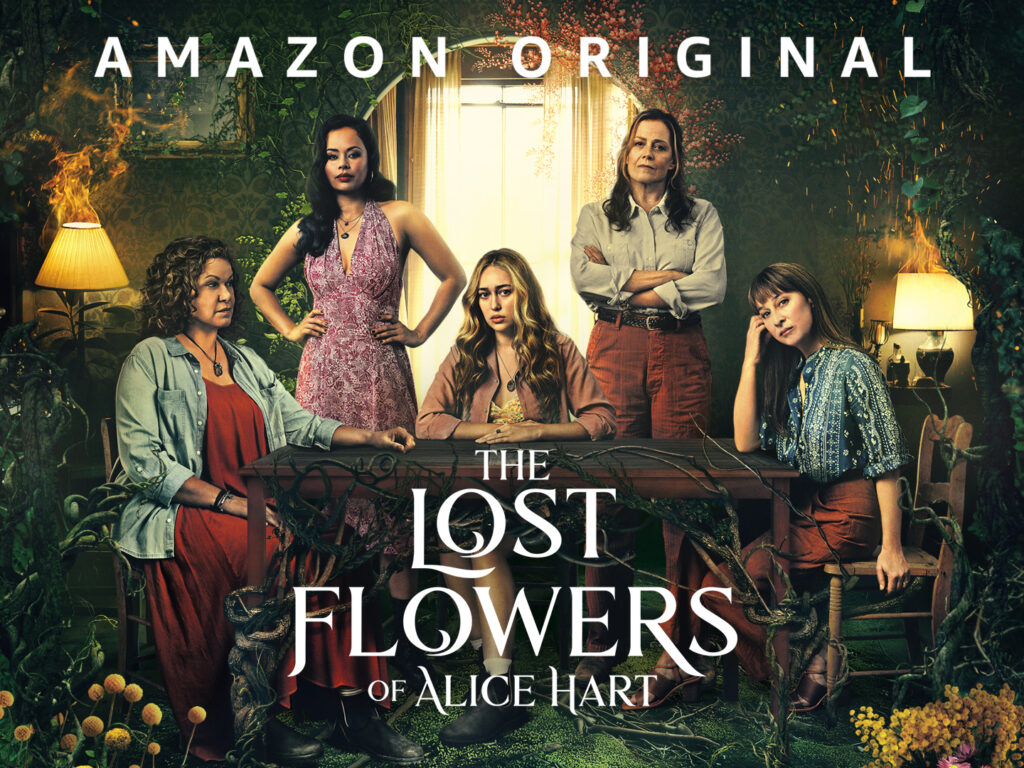The Lost Flowers of Alice Hart– Planting Seeds of Power

This seven-episode mini-series, The Lost Flowers of Alice Hart, is based upon Holly Ringland’s novel of the same name. Little Alice Hart (Alyla Brown), a nine-year old girl, suffers a very violent set of family circumstances living in the outback of Australia. Her father is abusive , especially when Alice wants to feel somewhat safe around him. Always guarded, the mother she adores is almost an angel for the child’s living hell. When her parents die in a horrific fire, Alice finds her life changing dramatically when she is sent to live with her grandmother, June Hart (Sigourney Weaver) at Thornfield, a wildflower farm and women’s shelter. Only a kind librarian, Sally (Asher Keddie), seems interested in the little girl.
The townspeople are suspicious of the grandmother, accusing her of witchcraft and being a lesbian, but keep their distance because of June’s economic power in the community. At her grandmother’s, Alice seems to have lost her speech, presumably traumatized by the tragedy of her mother’s death. Two women on the farm, Candy (Frankie Adams) and June’s partner Twig (Leah Purcell), help her recover and soon become her confidantes.
Fast-forward fifteen years to Alice as a young adult (Alycia Debnam-Carey) and we see the drama slow down notably, almost glacial in pacing. Wishing to escape from her grandmother’s overbearing protectiveness and control, Alice runs away, not quite clear about where to go or how to live. June is obsessively determined to track down her granddaughter and return her to Thornfield.
The Thornfield women communicate in a language of flowers instead of words, mirroring the little Alice’s loss of speech. What is the overriding trauma? Choosing the wrong men, the wrong friends, or lacking self-awareness and autonomy?
This series had the potential to be something quite remarkable, piercing the silencing of women’s voices by domestic abuse. However. too much focus is placed on the language of flowers, grinding the momentum almost to a halt. And just when nine-year-old Alice is developing a sense of self as well as her voice, her healing stops as we skip to twenty-four-year old Alice and her exploring canyons as a metaphor for exploring her own identity.
The character arc for June Hart is severely lacking. Notably in revealing the emotions for abandoning her daughter-in-law when she needed her most. And in her l paralysis in expressing emotion towards those she cares for. She was so unlikable, the viewer is puzzled, challenged to understand her unhealed wounds. Instead of providing answers, The Lost Flowers of Alice Hart left too much unsaid, resulting in a drama that is more frustrating than compelling. Even Sigourney Weaver cannot save this series.
Availability: Amazon Prime Video

PATRICIA COLMAN
Thanks for your insightful review. Think I’ll pass on this one.